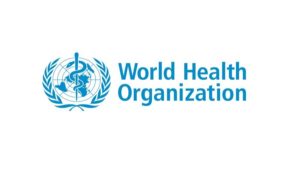In a global survey conducted by the World Health Organization, 90% of countries report interruptions in essential health services since the start of the COVID-19 pandemic.

The World Health Organization ( WHO ) has published a first study on the impact of COVID-19 on health systems based on reports from 105 countries (from all regions except America).
Data collected between March and June 2020 reveal that almost all states (90%) experienced an interruption in their health services, with low- and middle-income territories reporting the greatest difficulties.
Most countries reported that many routine and elective services had been discontinued, while in critical care, such as cancer screening and treatment and HIV / AIDS treatment, there had been high-risk interruptions in states with low incomes.
Among the areas most frequently interrupted are the diagnosis and treatment of noncommunicable diseases (69%), family planning and contraception (68%), treatment of mental health disorders (61%), and diagnosis and treatment of cancer (55%)
The survey sheds light on the cracks in our health systems, but it also serves to establish new strategies for health care delivery during and after the pandemic, said Tedros Adhanom Ghebreyesus, WHO Director-General. “We must better prepare for emergencies, but also continue to invest in systems that fully respond to people’s needs throughout life.”
According to the report, countries experienced on average interruptions in 50% of a set of 25 services.
Among the areas most frequently interrupted are the diagnosis and treatment of noncommunicable diseases (69%), family planning and contraception (68%), treatment of mental health disorders (61%), diagnosis and treatment of cancer (55%) .
States also reported disturbances in malaria diagnosis and treatment (46%), tuberculosis case detection and treatment (42%), and antiretroviral treatment (32%).
“Even the strongest health systems can be quickly overwhelmed and compromised by a COVID-19 outbreak, reinforcing the need for sustained data collection and strategic adaptations to ensure the maintenance of essential care delivery,” they explain. from WHO.
Detrimental health effects
For experts, although some areas, such as dental care and rehabilitation, may have been deliberately suspended in accordance with government protocols, the interruption of many of the other services will have detrimental effects on the health of the population in the short, medium and long term.
For example, interruptions to emergency room services occurred in 22% of countries, urgent blood transfusions were interrupted in 23%, and emergency surgery was affected in 19%.
76% of countries reported reductions in outpatient care due to lower demand and other factors, such as closures and financial difficulties. Other factors reported included redeployment of personnel to provide relief services in relation to COVID-19, unavailability of services due to closures, and disruptions in the supply of medical equipment and health products.
Many countries have started to implement some of the organization’s recommended strategies to mitigate service interruptions, such as triage to determine priorities, moving to online patient consultations, changes in prescribing practices and supply chain and public health information strategies.











